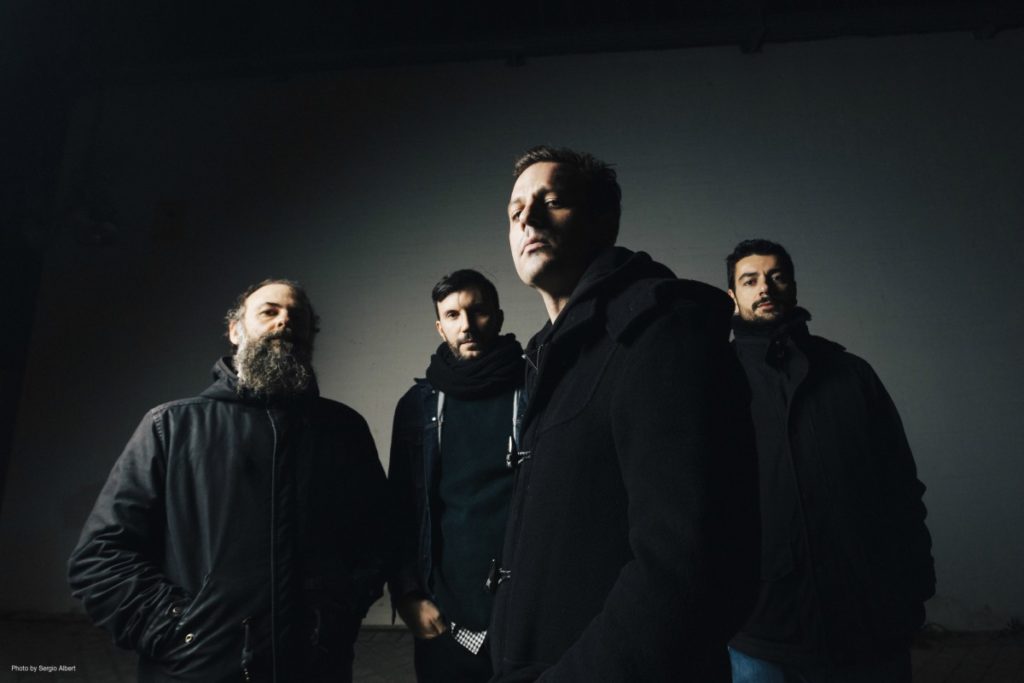Spain’s ambitious rock band Toundra have crafted a gripping new soundtrack for the classic silent film Das Cabinet Der Dr. Caligari, which tells a tale of creeping authoritarianism and control getting utilized as leverage to force people into horrifying situations. Delivered via the sounds of their new songs, Toundra’s take on the story feels like a sonic confrontation with those upending forces. Rather than opting for entirely outre music that might make authoritarianism and control feel too much like just something out of a history book, the band have presented often powerfully straightforward performances that feel like they drive listeners towards awareness of the dangerous ledges that, in reality, remain all too close
The entirely wordless tracks don’t need to be listened to with the movie itself to get a rich experience. The tracks aptly mix a sense of wonder and horror via the melodies that begin strong but rather soon end up contorted and sprawling. In the often lengthy tracks, the structure and performance stretch on and on, opening up a space to feel the subtle turns of approaching the looming expanse.
Apart from the first track, which is titled to go with the movie’s title sequence, each track on Toundra’s Das cabinet des Dr. Caligari is named after a succession of Acts in the movie. Akt I begins on an already slightly dramatized note via slowly building dynamic swings. The performances, here and across the album, feel fine tuned to shine a spotlight on the individual notes and, in connection, the individual moments. The opening sequences of the album feel like focused meditations on slight unease. Often, the music feels restrained, but Toundra include a persistent push, like they’re seeking to even get beyond the confines laid out by the songs themselves. The “rest” of the song’s impact seems like it lurks beyond the confines of the actual performance, drawing listeners into the experience. The music builds as if it’s going to devolve into a heavy breakdown, but before the actual crescendos arrive, the performances dial back down again and again.
This pattern repeats on Akt II, although the builds gradually get bigger. Eventually, there’s a break into a more dramatic emotionally upended riffing, with piano accompaniment. Throughout the rest of the album, the music gets significantly more ominous through means like increasingly contorted structures and atmosphere-setting, prominent keys, although even through these developments, the band’s melodically heavy directness shines through — which, in the context of the growing unease, feels more like a piercing cut to the bone than stability. That sense amplifies when particularly heavy performance comes in on Akt IV, prior to the rather reserved conclusion.
Ultimately, Toundra have poignantly captured the experience of creeping instability. It’s real, it’s here — and the music feels quite emotionally illuminating.
5/5 Stars
Photo thanks to Sergio Albert
Check out the music below!
You may also like
-
Diana Kurz at Lincoln Glenn in New York: A Review of a Shining Art Exhibition
-
Dustin Hodges at 15 Orient in New York City: An Ensnaring Exhibition at an Exciting Gallery
-
Maren Hassinger at Susan Inglett Gallery in New York: Reviewing an Uplifting Art Exhibition
-
Enzo Shalom at Bortolami in New York City: Reviewing an Entrancing Exhibition of Paintings
-
“Ben Werther: Townworld” at Amanita in New York City: Reviewing a Richly Memorable Art Exhibition
